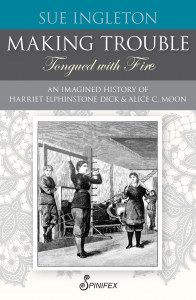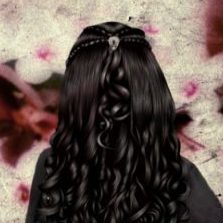 In the cold winter of 1875, two rebellious spirits travel from England’s pale sunlight to Australia’s raw heat.
In the cold winter of 1875, two rebellious spirits travel from England’s pale sunlight to Australia’s raw heat.
They were in love at a time when many women were in love with each other but held such love secretly for fear of retribution. Harriet Rowell (age 23) and Alice Moon (age 20) were champion swimmers in a time when women didn’t go into the sea; they were athletic and strong in a time when women believed men who told them if they didn’t bind their bodies in whalebone corsets they would fall over or ruin their childbearing purpose. They were in love in a time when many women were in love with each other but held such love secretly for fear of retribution.
In Australia, they will achieve their freedom and create a path for others to follow. With Alice’s wealth, they open a Women’s Gymnasium and teach mothers and daughters how to be strong, daring them to throw off the shackles of fashion and social laws that bind their natural female bodies and minds. With courageous defiance and rebellious natures, Harriet and Alice take on the world at a dangerous time for women’s freedom of expression.
Love ends. Alice breaks free from Harriet’s life and pursues her destiny with new friends as an author living in Sydney. Harriet, rejected and in despair, sells up and futilely follows her and thus, while struggling to come to terms with their painful separation, tragedy strikes. Alice, who has laughed in the face of death and danger all her life, is found dead in her bed. She is 37. Thrown into turmoil, her female friends build a wall of silence around the shocking death. Their suspicions rest upon the influential, chauvinistic scientist, John McGarvie Smith, with whom Alice had worked in her newfound capacity as a journalist. They leave a public accusation on her gravestone, a clue for a future woman to bring justice. I am that woman.






